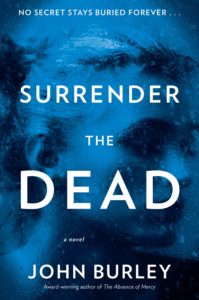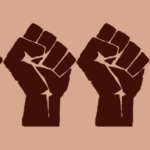I’ve been in the business of killing people for some time now. It started out in medical school: the patient I couldn’t save; the mistakes I made that kept me lying awake at night, staring into the darkness. The art of saving lives isn’t perfect. Complications develop. The body can be fragile and unforgiving. In the quest to cure we sometimes make things worse. Healing and destruction are two sides of the same coin.
They don’t tell you this on your first day in the hospital. They slap a white coat on you and tell you to go make a difference. They train you and test you and eventually let you practice on your own. But the outcomes in medicine are rarely certain. Sooner or later, you’re going to hurt someone. You come to terms with that or you stop practicing medicine. The doctors who are most dangerous are the ones who refuse to believe it.
So it is with writing. You create characters and put them on the page. They may be likeable or unlikeable, good or evil, but they all have a role to play. As the author, you have the power to heal them or to hurt them as the story unfolds.
But here’s the complicated part: every character comes from somewhere. You don’t just snap your fingers and a character appears, fully formed on the page. You start with an idea, and then you reach inside your bag of real-life memories and experiences, taking a little from here and a little from there. The character reminds you of your English teacher, of your roommate from college, the barista at your local coffee shop, or maybe even your brother. Often times they’re a bit of each of these people. They start to feel real because they come from real people, ones who left an impression on you so deep that they arose from your subconscious years or even decades later to lay claim to their part in your story.
I write psychological thrillers about families and communities in small-town America. I develop characters—formulated from bits and pieces of people from my past and present—and put them on the page. I make horrible things happen to them and see how they respond. And doesn’t it stand to reason that I would draw inspiration for my characters most heavily from family and friends because I know them the best. These are the people who occupy the most territory in my conscious and subconscious mind. And the things that I do to them are truly terrible. Sometimes they will not survive.
With the publication of each new book, I live in fear that they will call me out on this, and sometimes they do. My third novel, The Quiet Child, was about the destruction of a family in 1950s America. The mother of that fictitious family was cursed with a progressive neurologic illness that was slowly consuming her, and there was reason to think that her son was responsible. This was written during a time when my own mother was struggling with a similar disease. The inevitable question from my father after reading the book was, “Is this Mom?” What could I say to that? Yes? No? I’m sorry? I was putting my pain and grief on the pages of that book because they had to go somewhere. There was simply too much for me to hold on to.
My most recent novel, Surrender the Dead, focuses on the troubled relationship between a woman and her father as events from their past collide with the present when a long-buried corpse is discovered on the father’s property. The book is dedicated to both my sister and father, and yet the advanced copy that I intend to mail to my father is still sitting on the shelf in my office. Why? I ask myself, and the truth is that I’m afraid of hurting him. After everything that I’ve written, haven’t I hurt him enough?
This is how it is in medicine and in writing. You go into it with the best intentions. But sometimes you hurt people, and often it’s the people you care about the most. I re-visit them in my mind, the ones who I killed or injured in the process. There is something I want to tell them, but I don’t know how. Instead, I start working on another story, and I tell myself that this time it will be different. I will write only about good things, and all of those good things will happen to the people I love. I start with Chapter 1, but halfway through I realize that something terrible is just around the corner.
I’m sorry, I think. I love you. Whatever happens, I’ll be with you along the way.


















